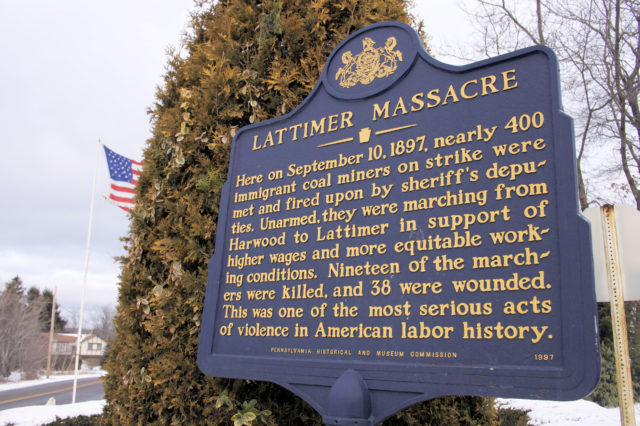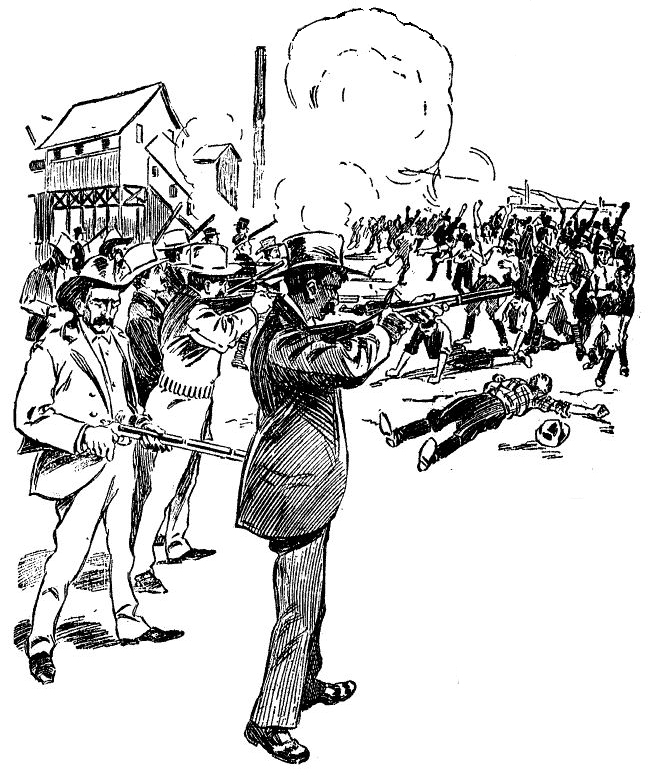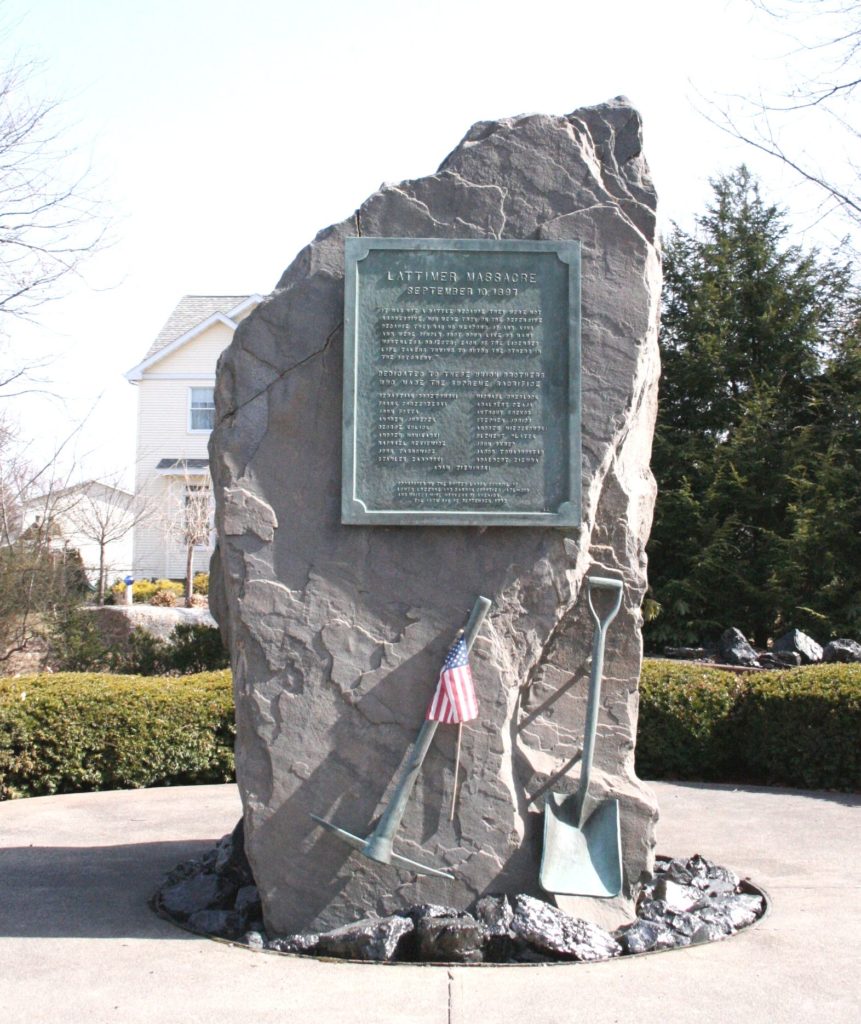
Lattimer UMC, in Lattimer Mines, PA, will commemorate on this Sunday afternoon, Sept. 10, the 120th anniversary of the Lattimer Massacre, a dark, tragic moment in our nation’s history, when striking immigrant mineworkers were slaughtered on the street by a local sheriff and his deputies.
The church, established in 1875 and located near our conference’s north central border, will host the public memorial program, fittingly within a week of Labor Day. Attendees will remember the day when 19 miners—mostly from Eastern Europe—lost their lives and nearly 40 were wounded in one of the most violent, racist attacks in American labor history. Lattimer’s pastor, the Rev. Earl Roberts III, is a member of the Hazleton Interfaith Ministerium, which sponsors the annual event.
On Sept. 10, 1897, the massacre of unarmed protesting miners began at 3:45 PM near the Lattimer Mines, one of several that produced the popular, carbon-based anthracite coal. These men, mostly Polish, Slovak, Lithuanian and German recent immigrants, were part of a much larger miners’ strike in the region. The group of about 400 was met by Luzerne County Sheriff James Martin and his posse of 150 armed men.
 Martin’s effort to take an American flag from one of the lead marchers led to a scuffle, inciting his deputies to open fire. The slain strikers were shot in the back as they fled. Many were shot also in the back of the head. Sheriff Martin and his men were not punished but were acquitted of wrongdoing in court.
Martin’s effort to take an American flag from one of the lead marchers led to a scuffle, inciting his deputies to open fire. The slain strikers were shot in the back as they fled. Many were shot also in the back of the head. Sheriff Martin and his men were not punished but were acquitted of wrongdoing in court.
However, the massacre, which received widespread national press coverage, was a turning point for the nascent United Mine Workers union. It opened its ranks to previously ostracized Eastern Europeans and welcomed more than 10,000 new members, making it powerful enough to win large wage increases and crucial safety improvements for miners throughout the region.
‘A story of justice … and simple human decency’
“This is a story of justice, economic and political, as well as one of simple human decency,” explained Roberts. Several of his church members have ancestors who were present among the strikers and the posse in the massacre. “It is a story about immigrants and how they have been received in this country historically. It is the story of peaceful protest being met with violence.
“There are, of course, people in our area who are descendants of both sides of this event 120 years ago,” he continued. “As always, the intent of this service is for us to reflect on and pray for justice and peace
Bishop Peggy Johnson, who remembered the massacre in her Bishop’s Blog last week—Labor Day: To praise and protect workers—will  attend and offer a closing prayer. A United Mine Workers representative will also bring greetings; and three Lattimer UMC members who are Pennsylvania State Police officers will attend. The creation of the State Police was another outcome of the Lattimer Massacre.
attend and offer a closing prayer. A United Mine Workers representative will also bring greetings; and three Lattimer UMC members who are Pennsylvania State Police officers will attend. The creation of the State Police was another outcome of the Lattimer Massacre.
The event will begin with a memorial service at 3:30 PM, led by clergy and other members of the ministerium, at the Lattimer Massacre Monument erected in 1972 (on Route 940, at Lattimer and Quality Roads). The local Patch Town Players will be there in late 19th century dress.
The gathering will then move up the road to Lattimer UMC for the memorial service at 4:30. There Bill Bachman, who teaches at Penn State University in Wilkes-Barre, will present a radio play he composed about the massacre and hard lessons it taught, especially about conflict resolution, retribution and forgiveness. Questions and answers will follow, as well as a music performance.
